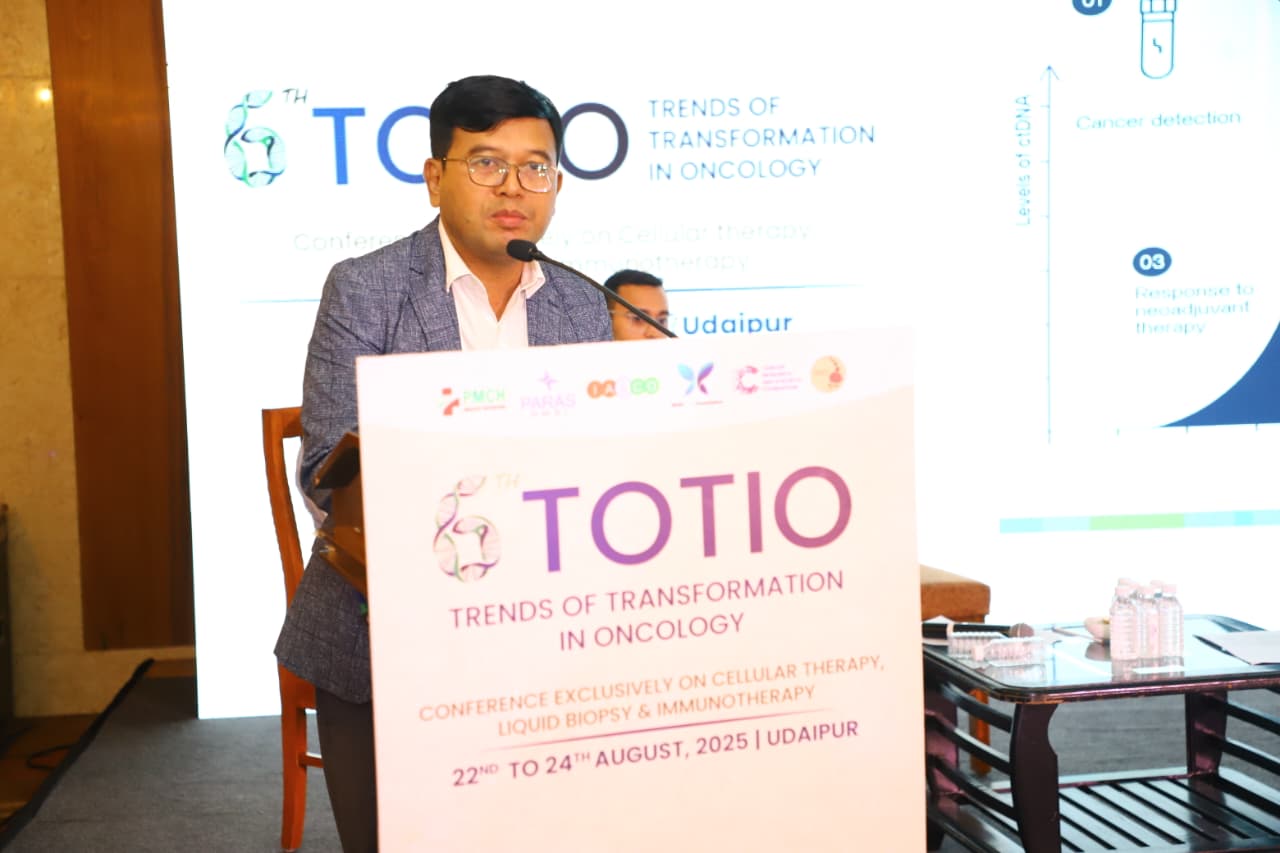
Udaipur, The second day of the ongoing three-day international conference Trends of Transformation in Oncology, jointly organized by Pacific Medical College and Hospital, Paras Health, and Cancer Research and Statistic Foundation, was marked by insightful discussions and groundbreaking innovations in cancer treatment.
Under the chairmanship of Dr. Manoj Mahajan, eminent oncologists and researchers from India and abroad deliberated on the latest dimensions of cellular therapy, liquid biopsy, and immunotherapy.
Dr. Mahajan informed that the focus of the second day was on the use of cellular therapy in breast cancer, particularly in triple-negative and HER2-positive cases, where CAR-T therapy and tumor-infiltrating lymphocyte therapy are being explored in research-based applications.
Experts highlighted the importance of circulating tumor DNA (ctDNA) in monitoring minimal residual disease (MRD) and assessing treatment response. Detailed discussions were also held on the role of ctDNA in metastatic breast cancer.
Dr. Ashay Karpe presented innovations in the treatment of lung cancer, showcasing the potential of CAR-T and TCR therapies in both non-small cell and small cell lung cancers. He emphasized the role of circulating tumor cells and ctDNA in diagnosis, MRD tracking, and resistance detection. He also compared liquid biopsy with traditional tissue biopsy, in line with NCCN/ASCO guidelines.
Dr. Mahajan stressed the importance of establishing CAR-T units in India, elaborating on legal requirements, infrastructure, team coordination, and cell processing laboratories. He also discussed the financial, ethical, and legal responsibilities involved in setting up such advanced treatment facilities.
From Japan, Dr. Nguyen Duy Sinh, along with Dr. Vijay Patil of Tata Memorial Hospital, Mumbai, presented insights on HPV-related and non-HPV-related head and neck cancers, highlighting the roles of CAR-T and natural killer cell therapy. They also focused on relapse symptoms and diagnostic approaches.
Dr. Saurabh Sharma reviewed renal cell carcinoma, exploring CAR-T, TCR, and NK cell therapies, and emphasized RNA signatures, extracellular vesicles, and ctDNA as key tools for disease monitoring and resistance identification.
Dr. Mahajan also discussed prostate cancer, pointing out that many rural patients delay diagnosis, often ignoring early symptoms, which reduces their chances of effective treatment. He underlined that timely diagnosis significantly increases the success rate of therapy.
Dr. Sharma further recalled the first day’s proceedings, which revolved around CAR-T cell therapy in DLBCL, ALL, and multiple myeloma. Experts compared real-world evidence with clinical trial data and reviewed biomarker-based therapies and patient selection criteria.
The second day concluded with the shared understanding that cellular therapy, liquid biopsy, and immunotherapy represent transformative milestones in oncology, promising greater accuracy, efficiency, and hope in the battle against cancer.